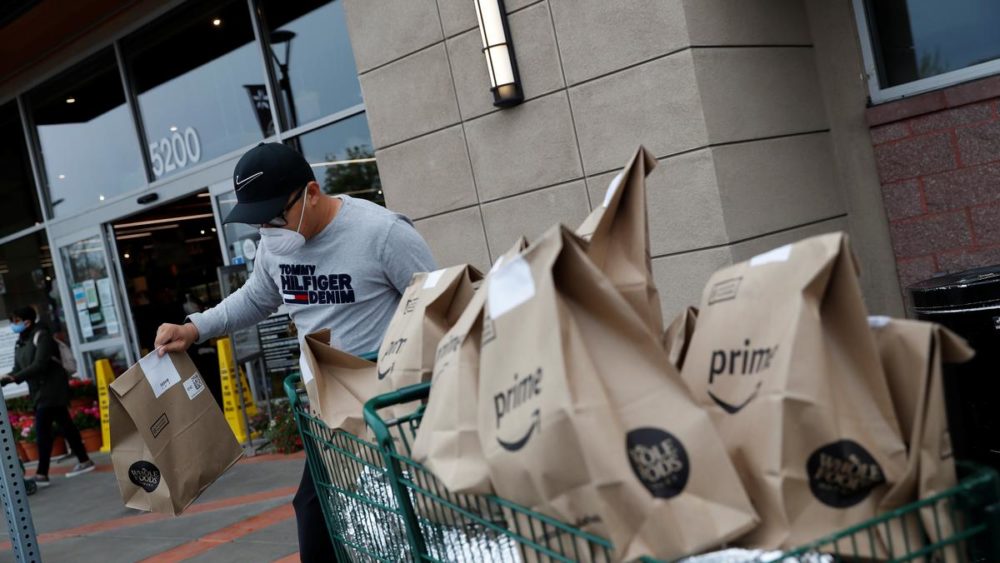“The uberisation of the economy must be halted in order to guarantee that the labor rights of all European peoples are protected.”
“Uberisation” has become so prevalent in our Western economies that the word itself has entered the most conservative French dictionaries. The uberisation of the economy refers to a new type of worker, most of the time working for digital platforms as gig workers. Such platforms’ business model only works if they offload their costs related to employees — and most often, also their tax burden, as most of these companies are based in tax havens or states that have highly reduced corporate taxes.
Digital platforms such as UBER, Deliveroo, Take it Easy, Foodora or Amazon choose to rely on freelance ‘service providers’ rather than contracted workers in order to make an increased margin of profit. These platforms entice thousands of workers with false promises on the advantages of not being salaried employees: freedom, staggered working hours, being their own boss and so forth.
The other side of the coin is obvious, but not always properly assessed by those that are targeted: since they are not contracted workers, they do not benefit from the protection of Employment Law or from collective agreements. They therefore do not have access to employment benefits such as paid holidays, compulsory weekly rest, a minimum fixed salary, limited grounds for dismissal and, above all, unemployment protection and pension contributions. This pension contribution usually amounts to 50 percent of their wage and would be covered by the employer in France if they were under contract
It has by now become clear to most workers that they do not benefit from the advantages espoused by these platforms.
What freedom is there when such platforms impose clients and routes? How can you be your own boss when you cannot turn down a call or a passenger at the risk of being badly rated and immediately dismissed? What free time do you have when you do not set your own prices and those imposed on you are so low that they force you to work until you find that you are putting your life, and sometimes even your health, in danger?
Ken Loach, in his latest film Sorry we missed you, illustrates the precariousness under which the uberisation of our economies is placing an increasing proportion of workers, including its potentially fatal consequences: “You don’t get hired here,” states the delivery-depot boss in Loach’s movie “You come on board. We call it on-boarding. You don’t work for us – you work with us” — but you die alone as a consequence of it, he may have added.
Uberised workers have become the new slaves of our economies: they are exploited at will for miserable incomes without any social protection and permanently tracked by embedded geolocation tools. The newspaper The Australian referred to this as “The Hunger Games at Work.”
Many large companies have seen the benefits they can derive from this flexible and disposable workforce. For example, some French retail banks recently announced that their account managers would soon no longer be hired as employees but will be ‘accepted on a freelance basis’.
During COVID19, major household retailers are now also adopting similar practices: in France as in other European countries, supermarkets like Franprix and Carrefour are taking advantage of this crisis to uberise their new staff instead of hiring them, even though their current profits would enable them to continue hiring employees.
During this pandemic, the precariousness of a large proportion of workers is becoming more visible.
Not only do self-employed workers no longer have any income, but they also have no right to unemployment benefit. They have little or no access to medical services depending on the country in which they work. Yet on the frontline, one finds those exploited workers, serving as delivery people who take on the risks of the virus to deliver takeaway meals, DVDs and toys to a confined population who will pay a trifle for a non-essential service.
A large number of customers who have become accustomed to these types of services for quite a few years now do not seem to ever ask themselves the question of whether or not they are endangering the lives of others. It is reminiscent of left-wing politicians prior to the COVID19 crisis arriving in Uber cars to campaign rallies where they would denounce low wages and precarious working situations.
Uberised workers constitute a proletariat that we do not hear from because they are not salaried workers and hence do not have workers’ representatives nor trade unions to speak for them.
For the moment, salvation came from a few courageous individuals amongst them and from the reasonable decisions handed down by several courts of justice that have taken hold of the problem in a number of European countries and beyond:
- In France, following multiple accidents, the law of 8 August 2016 granted to those ‘onboarded’ on a freelance basis by such platforms the right to have such companies finance their work accident insurance (something that employers usually take care of), as well as the right to be represented by a trade union and the right to be trained. The Court of Cassation has already reclassified a freelancer of Take It Easy as an employee in 2018, considering that the platform controlled the worker through geolocation and that he was not indeed a freelancer;
- A Spanish court has recognised the qualification of Deliveroo freelancers as an employees;
- The Court of Appeal in London granted Uber drivers the status of employees with minimum wage and a right to breaks and paid holidays in December 2018;
- In the United States, Uber agreed to pay up to $100 million to settle the appeals of two drivers aiming at being given employees’ rights;
- In Australia, Foodora decided to close down after action was taken by the Fair Work Ombudsman responding to inadequate remuneration that was reported as being paid to three of its workers.
Most recently on 4 March 2020 the French Court of Cassation demonstrated the existence of employer-employee relationship between the Uber platform and its workers as they must obey the platform’s commands and handed down a major ruling which reclassified this kind of service contract as an employment contract with all of the protections inherent to the status.
Platforms complained that this would ruin their business model. Ironically, it could be argued that in the early 19th century some businessmen also considered that the abolition of slavery would ruin their businesses, but this obviously would not justify holding back the abolition of slavery. Nevertheless, Emmanuel Macron’s government immediately reacted by declaring that there was a need to invent new rules “allowing freedom…”. Whose freedom?
In these times of COVID19, where health protection is synonymous with life or death, it is essential on this subject as on many others that DiEM25 encourages and leads trans-European reflection to counter the wishes of neoliberal governments allied with such platforms.
These platforms do not even pay taxes in the countries where their underpaid and abused workers operate, face danger and have to be taken care of by underfunded hospitals and infrastructure. They need to be held accountable for the position that they are putting workers in. The uberisation of the economy must be halted in order to guarantee that the labor rights of all European peoples are protected.
Do you want to be informed of DiEM25's actions? Sign up here















